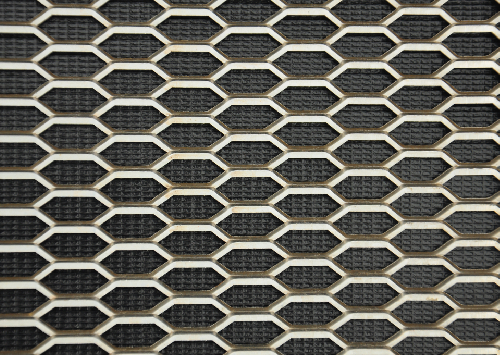

Des . 12, 2024 11:48 Back to list
The Role of Ferrous Shredders in Recycling and Metal Processing
As industries evolve and the demand for recyclable materials increases, ferrous shredders have emerged as an essential component of the metal processing sector. These powerful machines play a pivotal role in efficiently recycling ferrous metals, which are metals that contain iron, such as steel and cast iron. The importance of ferrous shredders in the recycling process cannot be overstated, as they contribute significantly to sustainability, resource recovery, and the reduction of environmental impact.
What is a Ferrous Shredder?
A ferrous shredder is a machine specifically designed to crush and shred large ferrous scrap into smaller, manageable pieces. These machines are equipped with high-speed rotating hammers and heavy-duty blades that enable them to process bulky metal items, including old cars, appliances, and construction debris. The shredding process breaks down the material into smaller fragments, making it easier to transport, sort, and further process for recycling.
The Importance of Recycling Ferrous Metals
Recycling ferrous metals has numerous environmental and economic benefits. It conserves natural resources by reducing the need for virgin materials, thereby minimizing the extraction processes that can lead to habitat destruction and pollution. Furthermore, recycling ferrous metals saves energy. The production of steel from scrap metal requires significantly less energy compared to extracting and processing iron ore. According to industry data, recycling one ton of steel conserves approximately 2,500 pounds of iron ore, 1,400 pounds of coal, and 120 pounds of limestone.
How Ferrous Shredders Work
The operation of a ferrous shredder begins with the collection of ferrous scrap metals. Once the materials are fed into the shredder, they undergo a multi-stage shredding process. In the first stage, initial size reduction occurs, where large pieces of scrap are broken down into smaller chunks. As the material continues through the shredder, it is subjected to further cutting and grinding until it reaches the desired size.

After shredding, the processed material is typically passed through magnetic separators that remove any non-ferrous metals and foreign debris. This ensures that the recycled ferrous metal is as pure as possible, making it suitable for reuse in various applications, such as construction, manufacturing, and automotive production.
Economic Impact
Ferrous shredders also have a broad economic impact. The metal recycling industry generates billions of dollars annually and provides thousands of jobs in manufacturing and processing. By efficiently breaking down scrap metal, ferrous shredders facilitate the supply of recycled metals to various sectors, thereby supporting job creation and economic growth. Moreover, as more industries prioritize sustainability, the demand for recycled ferrous metals continues to rise, bolstering the role of shredders in the market.
Environmental Benefits
The environmental benefits of ferrous shredders extend beyond mere resource recovery. By promoting the recycling of ferrous metals, these machines contribute to the reduction of landfill waste. Metal waste is a significant contributor to landfill mass, and by diverting scrap metal to recycling, we can minimize environmental pollution and extend the life span of existing landfills.
In addition, recycling ferrous metals through shredders helps in reducing greenhouse gas emissions. The energy savings associated with using recycled materials instead of newly mined resources contribute to a smaller carbon footprint in the manufacturing sector.
Conclusion
In summary, ferrous shredders play a crucial role in the metal recycling industry. By efficiently processing and shredding ferrous scrap, they facilitate resource recovery, support economic growth, and significantly reduce environmental impact. As industries continue to evolve towards more sustainable practices, the reliance on ferrous shredders is likely to increase, further enhancing their importance in the global effort to promote recycling and responsible metal processing. By investing in advanced shredding technology and ensuring efficient operations, we can harness the full potential of ferrous metals, paving the way for a greener, more sustainable future.
Latest news
Troubleshooting Common Eddy Separator Problems
NewsJul.04,2025
The Role of Metal Recycling Plants in Circular Economy
NewsJul.04,2025
The Impact of Recycling Line Pickers on Waste Management Costs
NewsJul.04,2025
Safety Features Every Metal Shredder Should Have
NewsJul.04,2025
How Industrial Shredders Improve Waste Management Systems
NewsJul.04,2025
How Cable Granulators Contribute to Sustainable Recycling
NewsJul.04,2025